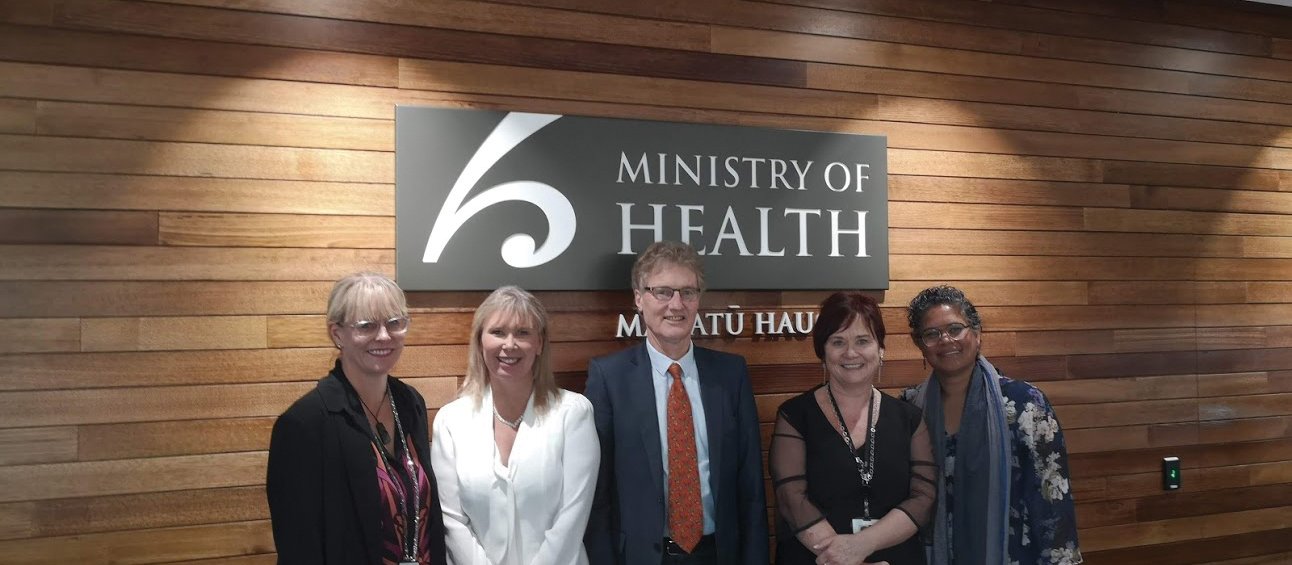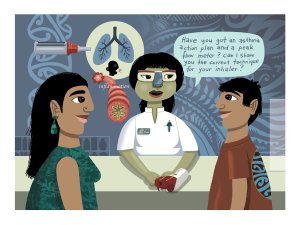Academic pharmacist Nataly Martini discusses the medical management of asthma in adults and adolescents, which has evolved to prioritise early anti-inflammatory treatment. She also explains how to improve patient outcomes by proactively identifying poor asthma control and supporting equitable access to education and treatment
Minor ailments: The Scottish experience
Minor ailments: The Scottish experience

With decision-makers including health minister Andrew Little talking seriously about implementing a minor ailments scheme for pharmacy, Jonathan Chilton-Towle spoke to Scottish pharmacist Bernadette Brown about her experience of working in a health system that already has an entrenched pharmacy-based programme
It’s not easy, I’ll tell you that much, but it’s very rewarding
Scottish pharmacy owner Berni Brown thought she had minor ailments “sussed”, but two years into an expanded nationwide minor ailments scheme she is rethinking everything about her practice.
Ms Brown’s pharmacy has almost become a GP clinic.
“We have bought the hairdressers next door and we’re turning it into Cadham’s Clinic because we need somewhere separate from all the hubbub and the busy, busy, busy, all the methadone and addiction clients coming in...and prescription requirements [to do minor ailments consults],” Ms Brown says.
Scotland has had a minor ailments scheme for years and in 2015, Ms Brown was one of the pioneers, trialling diagnosis and prescribing for conditions such as sinusitis, psoriasis, chronic obstructive pulmonary disease and eczema. The trial won her service-level agreements with all her local GP clinics to look after patients with these conditions through her Cadham Pharmacy in the small town of Glenrothes, Fife.
In 2020, the Scottish Government launched the NHS Pharmacy First programme, an expanded minor ailments scheme that allows community pharmacies to give expert help in treating conditions such as sore throats, earache and cold sores, along with common clinical conditions such as urinary tract infections (UTIs).
Pharmacy teams offer free advice, treatment or referral to other healthcare teams and a similar scheme is now on trial in England.
Some pharmacies, including Cadham, also have Pharmacy First Plus contracts which fund them for a minimum of 25 hours a week and 45 weeks of the year to provide a pharmacist prescriber-led service for patients presenting in the community pharmacy. They treat UTIs; respiratory infections; ear, nose and throat conditions; skin conditions; and eye infections.
Figures from Public Health Scotland last June show pharmacies in Scotland carried out more than 3.3 million consultations under Pharmacy First between July 2020 and March 2022.
Only 4 per cent of consults could not be managed in the pharmacy.
While many Scottish GPs initially opposed the minor ailments scheme, after years of experience they are used to it. When patients call their practices, a receptionist will signpost all minor illnesses to go to a pharmacy.
“It is almost like we are an annex wing of their practice now, because they are relying on us,” Ms Brown says.
It is also becoming the norm for patients to bypass their GP entirely and go straight to the pharmacy.
The workload is so high, the pharmacy is educating the public to call first to arrange an appointment or use an app for an online consult.
“We cannot function if everyone just walks in. We now have to think like a GP practice.”
Ms Brown says it is only possible for her to offer the service because her dispensary is entirely run by checking technicians.
Ms Brown says it is only possible for her to offer the service because her dispensary is entirely run by checking technicians.
She says New Zealand should not implement a similar scheme unless they can get systems in place to stop pharmacists being tied to dispensaries.
But overall, Ms Brown hopes her New Zealand colleagues will view a national minor ailments scheme as an opportunity.
“It’s not easy, I’ll tell you that much, but it’s very rewarding...I’m in my happy place in the clinic.”
We're publishing this article as a FREE READ so it is FREE to read and EASY to share more widely. Please support us and the hard work of our journalists by clicking here and subscribing to our publication and website






